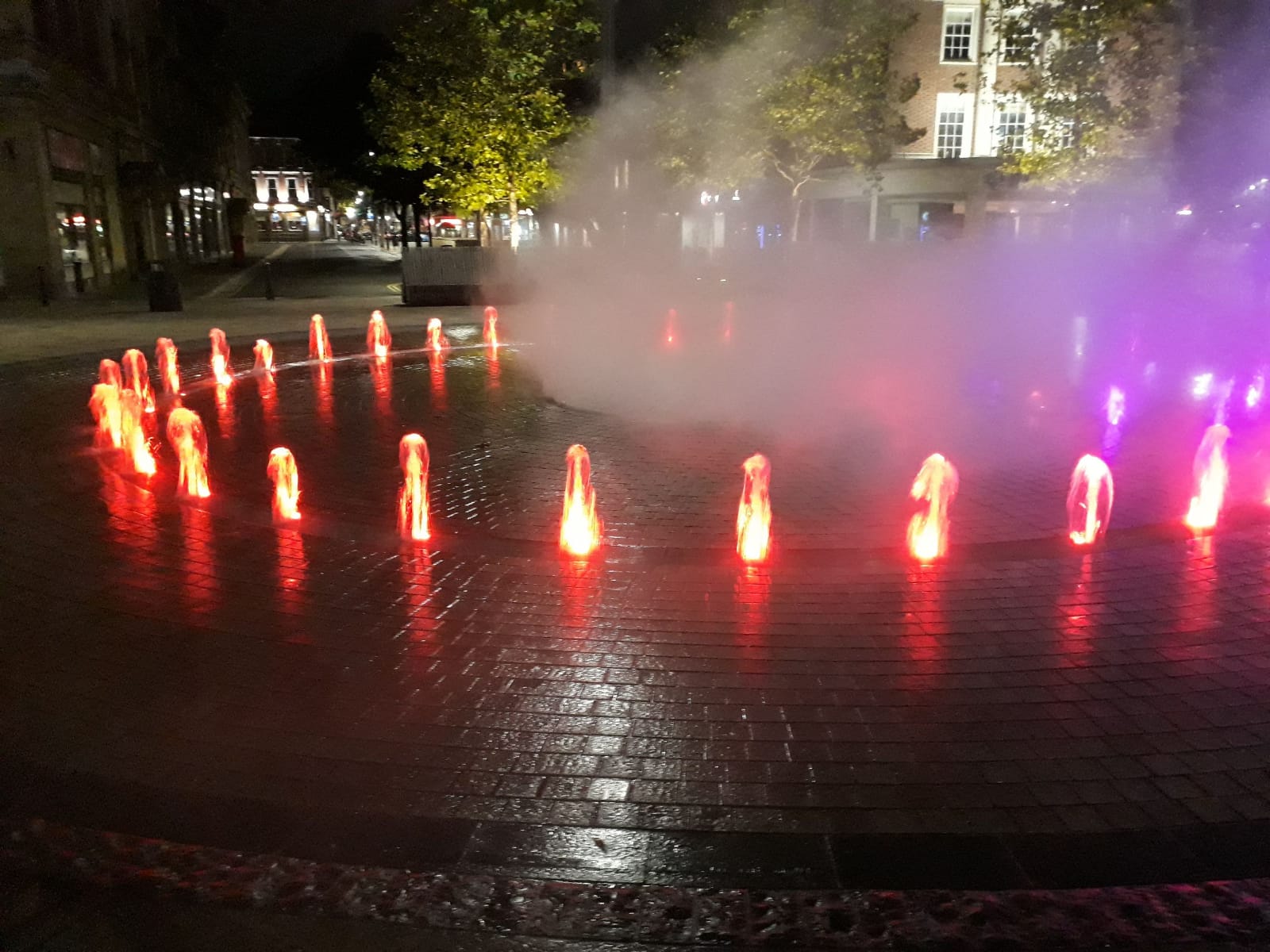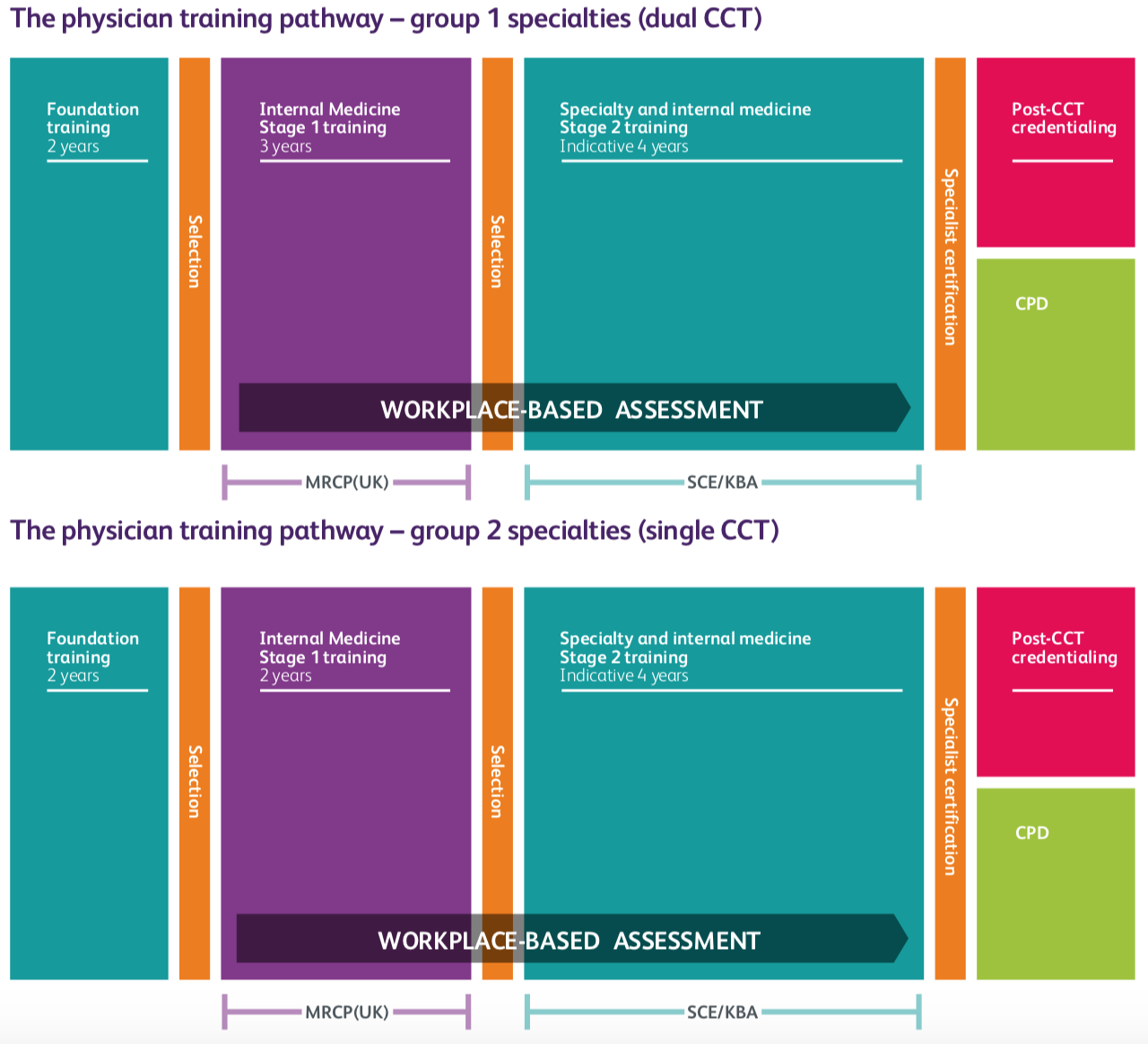Recruitment and Retention
Recruitment is undertaken nationally through: https://www.imtrecruitment.org.uk. Please check this website for up-to-date information on the application timeline, requirements and restrictions.
We have compiled a list of Frequently Asked Questions in the tabs below which should answer your queries, but for any further information please message us via the Contact Us page.


Internal Medicine Training (IMT) offers broad based training in the medical specialties, allowing you to specialise in one of the 30 plus specialties at specialty trainee registrar level (ST3 and ST4). Completion of IMT as well as completion of the MRCP examinations is required in order to progress to this stage, and allows the possibility of dual accreditation in a specialty of your choice and general internal medicine.
The new Internal Medicine Stage 1 Training (IMT) curriculum replaced Core Medical Training (CMT) in August 2019. This new programme incorporates training in a broad base of medical specialties and is designed to provide trainees with the experience to confidently manage acutely unwell patients and those presenting with complex and multiple comorbidities.
The new IMT curriculum has moved away from competency ‘tick box’ style record of achievement, and instead focusses on generic and specialty ‘capabilities in practice, CiPs’. For this reason, getting into the habit of keeping a regular training record is essential and will prepare you extremely well for the IMT programme.
For further information please see the JRCPTB website: https://www.jrcptb.org.uk/imt
The new training pathway is detailed below:

The IMT programme incorporates training in both secondary and tertiary teaching hospitals, in order to take advantage of the learning opportunities in each.
There are well regarded dedicated training days on a range of core topics, as well as procedural skills training delivered in the clinical skills laboratory setting and encouraging trainees to practise in a safe environment.
The excellent ASCME (acute simulated core medical emergencies) course is offered to all trainees giving realistic experience in core management and communications skills. Our new integrated programme offers trainees novel teaching delivery particularly in the area of palliative medicine. Our IMT trainees are encouraged and supported in developing their own quality improvement projects (QIPs) early on, with the potential to present locally at our annual IMT trainee’s conference, as well as nationally.
Health Education England continues to support the delivery of intensive PACES revision courses including mock examinations, which have received excellent trainee feedback. They have also invested substantially in the Clinical Skills Centres delivering renowned simulation-based training, delivered in the largest hospitals at Hull, Leeds and Sheffield, using state-of-the-art facilities.
You will join a dynamic training programme in one of the most beautiful parts of the country, with the East Yorkshire area home to stunning coastal towns, the West which boasts incredible hillside walking opportunities of the Pennines, and the historical South Yorkshire and picturesque Peak District.
Excellent links with the Universities in our region offers you the opportunity to pursue your own interests in research and academic studies, and our institutions continue to score highly nationwide (Complete University Guide, 2019).
This is not a prerequisite for entry. Most IMT trainers would suggest preparation for the MRCP Part 1 examination will provide trainees with a broad knowledge base when you commence medical training. This will also provide the best chance of achieving the Part 2 and PACES examinations in preparation for specialty training applications.
It is possible to take the MRCP Part 1 exam 12 months following graduation. The School provides an intense PACES revision course for every trainee, and it's free!
Ensure you build on your CV and portfolio early, as this is your record of achievements and showcases you.
Record your audits, presentations and teaching, and ensure you obtain feedback and reflect on these.
Ensure you include all of your academic achievements including distinctions, honours, essay competitions and audit prizes.
Include leadership and management experience, such as junior doctor representative roles. Try to take any opportunities for professional development that may come your way, such as taking on the role of Associate College Tutor, which can provide you with experiences in collaborating with trainees and trainers, and give you interesting talking points (and the edge) when applying for roles in the future.
Be sure to draft a copy of your application form early in order to review this, with advice from your Trainer.
Take care to answer the questions that are asked carefully and submit your application in good time in order to avoid last minute technical glitches!
It is anticipated that all trainees will complete placements at both district general and tertiary hospitals in the region to obtain a robust range of experience. IMT recruits trainees via a national recruitment process. If you are successful in obtaining an IMT post, you will be offered a choice of programme. Your ranking will inform the post allocation process.
It may be permissable to arrange mutual swaps of post within and between the Deanery, providing all parties are in agreement and training needs are met. Ensure you discuss this with your Educational Supervisor early if you are thinking about this.